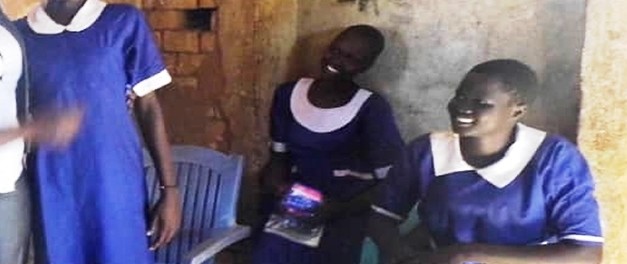Education is every child’s right. But schoolgirls in Pochalla County still face many economic and cultural barriers in pursuing a formal education.
Adolescent girls in Pochalla County of the Greater Pibor Administrative Area are subjected to a myriad of challenges including early marriage that prevents them from accessing education and attaining their full potential.
17-year-old Apiew Gilo is one of these young girls who are worried that her dream of becoming a medical doctor may be dashed should no one support her education.
Apiew, a grade 7 pupil, said girls in the area of Pochalla have a smaller chance of attending school than their male counterparts, due, in part, to a long-held perception that boys are entitled to more privileges than girls.
“We are viewed as wealth. For example, if my brother marries and the family cannot pay dowry, they can force me to get married. Another reason is that there are not enough teachers and schools. So this makes us to lose hope, “Apiew told Radio Tamazuj.
According to education officials in the area, girls account for less than half of the 1,500 pupils who enrol in schools annually.
Alami Ogato, a pupil in grade 7, blamed the low turnout and high dropout among her peers on the widely practiced early marriages.
“Here, early marriage is too much. Young girls are being forced to marry old men. So this is the reason for not having enough girls who are in schools,” said Ogato.
She added, “The other reason is lack of good services in schools. For example, if there is no sanitary pad, one chooses to remain home.”
Izza Gilo Obang, 17, urged the government to invest in the education sector, saying girls sometimes prefer early marriages due to frustrations.
However, Abui Odol, the head of women’s association in Pochalla said they have been engaging community leaders to ensure early marriages are outlawed in the area.
The women leader appealed for support toward girls’ education.
South Sudan faces significant challenges when it comes to education. Despite some progress, the fragile context and the widespread violence combined with cultural biases have restricted access to education.
Othai Gora, the county education director, blamed the high dropout rates among girls to lack of access to educational services.
“In Pochalla, there are only 18 primary schools with 56 teachers. Many teachers left because of low salary. There are no basic services. So this forces female pupils to dropout of schools,” said Othai.
He added, “For example, on average, we annually register about 1,500 pupils of which less than 600 are females. Of this figure, more than 20% get married off before they finish primary education. This is because there are no secondary schools and so they do not have hope. Last year, only 22 pupils sat for primary leaving certificate.”
The educational official urged the national government to invest in education, emphasizing that education would shape the country’s future.
Munira Abdel-Wuhab Suleiman, a lawmaker representing Pochalla County in the national legislative assembly, said her area has remained marginalized since 2005, adding that local residents cross to neighbouring Ethiopia to access education and healthcare services.
The legislator appealed to the national government and aid agencies to support the education department in Pochalla.
The area of Pochalla, by road, is largely cut off from the rest of South Sudan.




